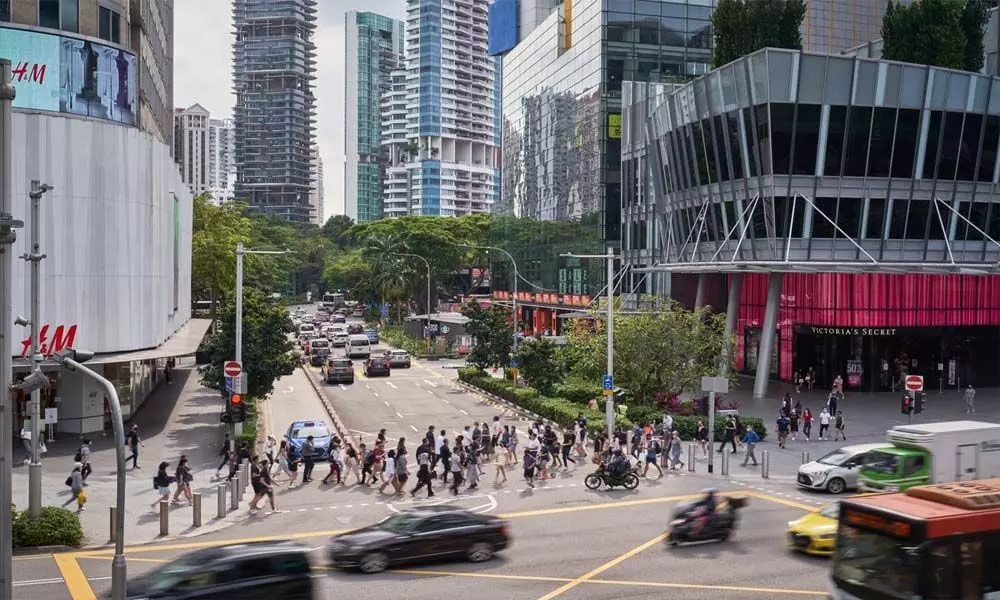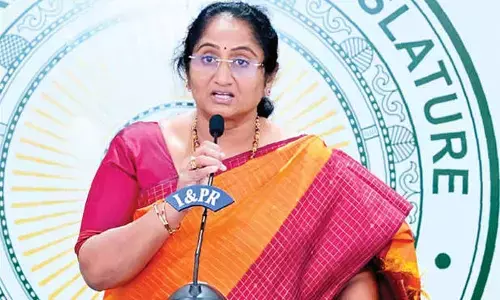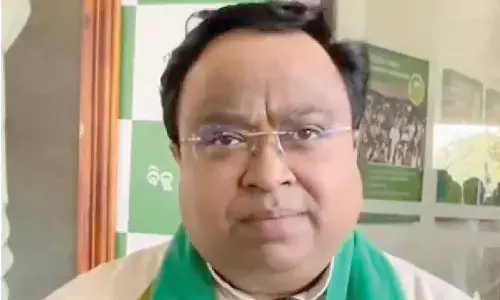Singapore Defends Foreign Labor as Opposition Seeks Limits

Singapore Defends Foreign Labor
Top Singapore ministers defended the government’s free trade agreements and openness to foreign professionals amid criticism from political opponents that increased job competition -- particularly from India -- has made it harder for locals to find work.
Top Singapore ministers defended the government's free trade agreements and openness to foreign professionals amid criticism from political opponents that increased job competition -- particularly from India -- has made it harder for locals to find work.
Free trade agreements are a keystone for the economy and responsible for creating hundreds of thousands of jobs, Health Minister Ong Ye Kung said in an address in parliament on Tuesday. Speaking in his capacity as a former trade negotiator, Ong further reiterated the need to maintain a balance of foreign workers in Singapore even as the opposition has called for measures that favor citizens.
"We need to be careful that these valid concerns are not exploited by political groups, and intentionally or not, end up sowing division, stoking fear, fanning hatred," Ong said. "We must not inadvertently shake the bedrock that has enabled Singapore to succeed. We cannot survive – we cannot earn a living – without being connected to the world, without being welcoming to the world."
While the debate in Singapore over the reliance on foreign labor is a perennial one, the issue has sharpened politically as the city-state emerges from the pandemic. The need to bring in labor and stay globally competitive as business activities resume has clashed with concerns over local employment and tighter borders to stem the virus. The government, long led by the People's Action Party, has consistently reiterated the need for the country to remain open to international talent, while stressing it has worked hard to retain and grow jobs for its citizens.
Opposition politician Leong Mun Wai, of the Progress Singapore Party, in a Facebook post last month called for a "rebalancing" of the job market through measures such as the "recouping of tens of thousands of jobs from work pass holders through tighter enforcement of our employment rules." In parliament on Tuesday, Leong, together with other politicians sparred on topics ranging from the necessity of these trade pacts to Singaporeans being displaced in their jobs.
"What we are driving at is not abolishing things," Leong, who's an ex-banker, said. There must be a policy recognition of whether the country's foreign talent policy "was on the right track or not," he said.
Free Trade Agreements, Visa Trends
In his speech, Ong highlighted that nothing in a free trade agreement with India, known as the Comprehensive Economic Cooperation Agreement, implied that Singapore must unconditionally allow professionals, managers and executives from India to enter the country. Singapore maintains 26 foreign trade agreements, including with the U.S, China, EU, Japan and ASEAN.
The growth in foreign professionals in Singapore has expanded in tandem with the local workforce. The number of employment pass holders, which are issued for higher-skilled roles that pay at least S$4,500 ($3,360) a month, rose from 65,000 in 2005 to 177,000 in 2020. At the same time, the increase in number of local professionals, managers and executives "is much higher," Ong said, growing by over 380,000 over the same period.
"These numbers underline an important point: that competition between foreign and local PMEs is not a zero-sum game," he said.
Moreover, foreign professionals "also help cushion the impact on the local workforce when times are bad," Ong said, adding that "foreigners bear the brunt of job losses" during a downturn. During the pandemic for the 12 months to April this year, the number of employment pass holders dropped by about 21,600, he said. Over the past year, the government has also raised the salary thresholds for foreign professionals as well as toughened the requirements for their dependents.
Last year's total net job losses were the sharpest in more than two decades. Still, the loss came entirely on the side of non residents, while net employment of locals actually rose, according to Ministry of Manpower data.
'Golden Opportunity'
In a separate speech, manpower minister Tan See Leng also outlined the challenges in striking a balance between attracting foreign investments and nurturing local talent. He said the government is studying refinements to its visa policies, such that it doesn't just rely on salary criteria as a gatekeeper to select talent. More details will be shared, he said.
In fast-growing sectors like technology, there isn't enough locals to fill the jobs available and there are 6,000 jobs in the infocomm sector alone that remain vacant, he said. The rise in employment pass holders from India, which last year made up about a quarter of all pass holders from 13% in 2005, is driven by factors such as the expansion of the digital sector and outward mobility of Indians.
While both ministers acknowledged the social tensions and anxiety that arise from having more foreigners, Tan said the country is at a critical point, where there are opportunities if it plays its cards right. Businesses are seeking to invest more in Singapore, but only if they can get foreign workers to supplement the local workforce.
"This is a golden opportunity for Singapore to pull ahead," he said. "But if we turn protectionist and we make it difficult for companies to hire talent from around the world – then we will lose this opportunity."










